The Study of Gonzalo Frasca's Ludology: A study of Video Games
Ludology
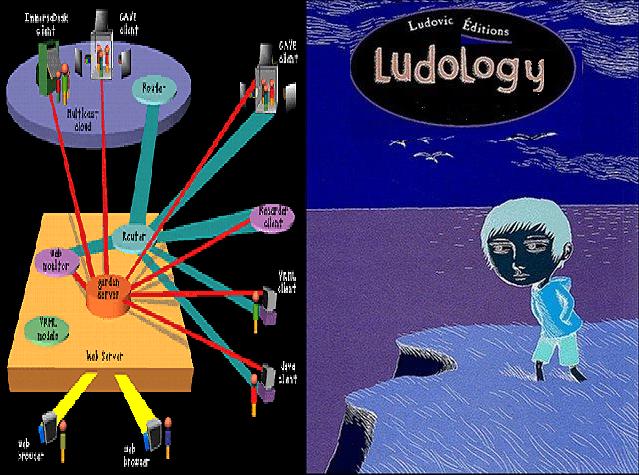 A Philosophic way of breaking down the game into its parts and analyzing
what makes it tick!
Game studies (or "ludology," as it's known, from the Latin for "game"), has
spawned a new class of academics who devote themselves to analyzing how the wildly
popular form of entertainment tells stories -- and what it reveals about how we
express ourselves.
A simplistic way of thinking about ludology boils down to this:
Abstract games do not need a story, like chess, checkers, Trivial Pursuit, poker,
Go, etc.
Narratologist believe that games that involve characters are better off with a
story to give meaning to the action. Ludology states that games are formal,
rules-based systems.
The more abstract the game, the less the need for a story to tie it all together.
But once you add actual characters to the game -- especially human characters --
there's something hardwired in us that makes us want a story to give context to
the action. It's not required by the game. But it's desired by the player.
------------------------------------------------------------------------------
Narratology
A Philosophic way of breaking down the game into its parts and analyzing
what makes it tick!
Game studies (or "ludology," as it's known, from the Latin for "game"), has
spawned a new class of academics who devote themselves to analyzing how the wildly
popular form of entertainment tells stories -- and what it reveals about how we
express ourselves.
A simplistic way of thinking about ludology boils down to this:
Abstract games do not need a story, like chess, checkers, Trivial Pursuit, poker,
Go, etc.
Narratologist believe that games that involve characters are better off with a
story to give meaning to the action. Ludology states that games are formal,
rules-based systems.
The more abstract the game, the less the need for a story to tie it all together.
But once you add actual characters to the game -- especially human characters --
there's something hardwired in us that makes us want a story to give context to
the action. It's not required by the game. But it's desired by the player.
------------------------------------------------------------------------------
Narratology
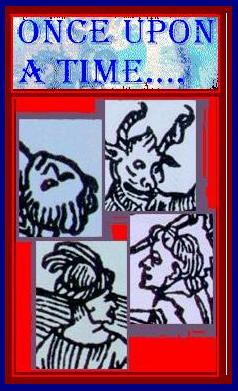 Controversy of ludology concepts vs. narratology in the Video Game Genre
NEW YORK -- Perhaps the most heated debate in the young field of video game
studies is what's called "narratology vs. ludology."
Narrativists believe that games should be used as media to tell stories, while
Ludologists say we don't ask games like chess or Scrabble to tell stories, so
video games shouldn't either.
The argument has led to games that seem to fall somewhere in between, or turn
the debate on its head. "The Sims," the best-selling computer game of all time,
gives players the tools -- in the form of virtual dolls, houses or playsets --
to act out stories of their own.
Defining "The Sims" (is it a game? a story engine? a virtual sandbox?) has not
been easy, and there are theorists who spend all their time simply trying to
develop a new vocabularly for talking about games.
-------------------------------------------------------------------------------
Virtual Environments
Controversy of ludology concepts vs. narratology in the Video Game Genre
NEW YORK -- Perhaps the most heated debate in the young field of video game
studies is what's called "narratology vs. ludology."
Narrativists believe that games should be used as media to tell stories, while
Ludologists say we don't ask games like chess or Scrabble to tell stories, so
video games shouldn't either.
The argument has led to games that seem to fall somewhere in between, or turn
the debate on its head. "The Sims," the best-selling computer game of all time,
gives players the tools -- in the form of virtual dolls, houses or playsets --
to act out stories of their own.
Defining "The Sims" (is it a game? a story engine? a virtual sandbox?) has not
been easy, and there are theorists who spend all their time simply trying to
develop a new vocabularly for talking about games.
-------------------------------------------------------------------------------
Virtual Environments
 Virtual Environments in Video Games as Contemporary Icons for our Age
If the game developer has done a very good job, the relevance of those created
games are that they have the exceptional ability to shape the contemporary
Imagination," said Italian game researcher Matteo Bittanti, who publishes a
series of books that analyze individual games. "These are games that, in many
cases, transcend the ludic sphere to become icons of our age."
Gonzalo Frasca, (The Study of Ludology)
Virtual Environments in Video Games as Contemporary Icons for our Age
If the game developer has done a very good job, the relevance of those created
games are that they have the exceptional ability to shape the contemporary
Imagination," said Italian game researcher Matteo Bittanti, who publishes a
series of books that analyze individual games. "These are games that, in many
cases, transcend the ludic sphere to become icons of our age."
Gonzalo Frasca, (The Study of Ludology)
 Gonzalo Frasca sporting a "Go Speed Racer" T-Shirt
The Study of Ludology
Gonzalo Frasca is a leading researcher of video games and their impact on the social
interactions with people and of game play being an important part as a storytelling
medium.
Gonzalo Frasca is a videogame researcher and developer, currently working at the
Center for Computer Games Research at the IT University in Copenhagen. He's
co-founder and senior producer at Powerful Robot Games, a videogame development
studio focusing on advergaming and webgames. In late 2003, he produced and
co-designed the first official videogame ever commissioned for a U.S. Presidential
Campaign. He has recently created Cambiemos, another official game, now for the
Uruguayan election campaign.
Frasca has extensively written about videogame design and criticism. His research
work focuses on videogame rhetoric's, advergaming, political and educational games.
He also develops videogames to illustrate his theoretical research. He leads the
group behind Newsgaming.com, a project that mixes videogames with current
international events ("Newsgaming represents (a) new form of political expression"
- MIT Technology Review).
He publishes Ludology.org (a "seminal game studies site" according to the
International Game Developers Association and one of the "hip places for a new
generation of media philosophers" according to MSNBC) and co-publishes
WaterCoolerGames.org, an online resource about persuasive games. Frasca's
research work has been presented at several international conferences in the
USA, Europe and Japan.
Frasca's games and research work have caught the attention of international
media, including The New York Times, The Wall Street Journal, Wired.com,
Famitsu, CNN, BBC and Edge Magazine.
Frasca is currently one of the Editors at Game Studies, the international
journal of computer game research. He is also a former head of videogame
development at Cartoon Network LA and editor of science and technology at
CNNenEspañol.com
His undergraduate and graduate degrees are from the Catholic University of
Uruguay and the Georgia Institute of Technology, respectively.
------------------------------------------------------------------------------
Virtual Man
Gonzalo Frasca sporting a "Go Speed Racer" T-Shirt
The Study of Ludology
Gonzalo Frasca is a leading researcher of video games and their impact on the social
interactions with people and of game play being an important part as a storytelling
medium.
Gonzalo Frasca is a videogame researcher and developer, currently working at the
Center for Computer Games Research at the IT University in Copenhagen. He's
co-founder and senior producer at Powerful Robot Games, a videogame development
studio focusing on advergaming and webgames. In late 2003, he produced and
co-designed the first official videogame ever commissioned for a U.S. Presidential
Campaign. He has recently created Cambiemos, another official game, now for the
Uruguayan election campaign.
Frasca has extensively written about videogame design and criticism. His research
work focuses on videogame rhetoric's, advergaming, political and educational games.
He also develops videogames to illustrate his theoretical research. He leads the
group behind Newsgaming.com, a project that mixes videogames with current
international events ("Newsgaming represents (a) new form of political expression"
- MIT Technology Review).
He publishes Ludology.org (a "seminal game studies site" according to the
International Game Developers Association and one of the "hip places for a new
generation of media philosophers" according to MSNBC) and co-publishes
WaterCoolerGames.org, an online resource about persuasive games. Frasca's
research work has been presented at several international conferences in the
USA, Europe and Japan.
Frasca's games and research work have caught the attention of international
media, including The New York Times, The Wall Street Journal, Wired.com,
Famitsu, CNN, BBC and Edge Magazine.
Frasca is currently one of the Editors at Game Studies, the international
journal of computer game research. He is also a former head of videogame
development at Cartoon Network LA and editor of science and technology at
CNNenEspañol.com
His undergraduate and graduate degrees are from the Catholic University of
Uruguay and the Georgia Institute of Technology, respectively.
------------------------------------------------------------------------------
Virtual Man
 (The below are snips from Essays by: Gonzalo Frasca)
LUDOLOGY MEETS NARRATOLOGY:
Similitude and differences between (video) games and narrative.
By Gonzalo Frasca.
Not the complete text version - but a snippet of pieces
THE NEED FOR A LUDOLOGY
The term narratology had to be invented to unify the works that scholars from
different disciplines were doing about narrative. The research about games and
play is in a similar situation: the topics have been broadly studied from different
disciplines (for example, psychology, anthropology, economy and sociology).
However, these studies are generally independent, focusing on small characteristics
and without looking for bigger patterns of understanding.
We will propose the term ludology (from ludus, the Latin word for "game"),
to refer to the yet non-existent "discipline that studies game and play activities".
Just like narratology, ludology should also be independent from the medium that
supports the activity.
The first necessary step in order to understand games should be looking for a
clear definition of the object of study. An overview of the available bibliography
[Frasca, 1997] shows that definitions are vague and sometimes even contradictory.
----------------------------------------------------------------------------------
Virtual Environment
(The below are snips from Essays by: Gonzalo Frasca)
LUDOLOGY MEETS NARRATOLOGY:
Similitude and differences between (video) games and narrative.
By Gonzalo Frasca.
Not the complete text version - but a snippet of pieces
THE NEED FOR A LUDOLOGY
The term narratology had to be invented to unify the works that scholars from
different disciplines were doing about narrative. The research about games and
play is in a similar situation: the topics have been broadly studied from different
disciplines (for example, psychology, anthropology, economy and sociology).
However, these studies are generally independent, focusing on small characteristics
and without looking for bigger patterns of understanding.
We will propose the term ludology (from ludus, the Latin word for "game"),
to refer to the yet non-existent "discipline that studies game and play activities".
Just like narratology, ludology should also be independent from the medium that
supports the activity.
The first necessary step in order to understand games should be looking for a
clear definition of the object of study. An overview of the available bibliography
[Frasca, 1997] shows that definitions are vague and sometimes even contradictory.
----------------------------------------------------------------------------------
Virtual Environment
 Expansion of Traditional Narrative
Some authors see cyber texts and videogames as a new form of or as an expansion of
traditional narrative or drama. The fact is that these computer programs share many
elements with stories: characters, chained actions, endings, settings.
However, there is another dimension that has been usually almost ignored when
studying this kind of computer software: to analyze them as games.
The major problem is the actual situation of the study of traditional games:
lack of clear definitions and theories; more functionalist approach rather than
formalist; fragmented analysis from different disciplines.
LUDUS AND NARRATIVE
The concept of ludus can be helpful to understand the relationship between
this particular kind of entertainment and narrative.
Ludus have a defined set of rules. These rules can be transcribed, and easily
transmitted among different players. Sometimes, rules are backed up by
organizations that define their rules, like FIFA for soccer.
Adventure videogame are made by many different "puzzles", or problems that need
to be solved in order to continue the game. Those "puzzles" perfectly fit the
definition of ludus.
Adventure videogames usually have, at least one "correct" path to win the whole
game. There is a right sequence of solving that will lead to the triumphal
denouement of the adventure's "story". Each time the player fails solving a puzzle,
either the videogame ends "wrongly" (and the player loses), or the player has to
continue until she goes through it.
Adventure videogames determine a player's performance through a particular set of
functions, from the point of view of the character that he is controlling. One
particular combination of functions (plot) is the winning one; all the rest will
lead to the player's defeat.
GAMES AND NARRATIVE ARE NOT THE SAME THING
Narratives: The possible narratives ("possible narratifs") that are available
for the author when crafting the story. There will only be narrative when
the author decides which path of the scheme she will take (and, therefore, a
sequence is built).
Ludus: In a similar way, The ludus scheme represents the possibilities of the
game (winning or losing), but not a particular session of ludus. Ludus and
sessions are different things; the first is general, the second is particular.
ludus and narrative are not equivalent, because the first is a set of
possibilities, while the second is a set of chained actions. Although they
seem to be similar in structure are the session and the sequence they do
not mean the same thing.
For an external observer, an adventure videogame session will look like a group
of narrative sequences. However, the player is not an external observer.
Observers are passive, the player is active. If the player does not act,
there will be no game, and therefore no session at all. It is a completely
different activity to watch a game and to play the game.
While ludus and narrative are not the same thing, some kinds of ludus
(particularly the adventure videogame), can produce narrative sequences and,
therefore, narrative. However, producing narrative and being narrative are
different things.
Ludus sessions are structurally similar to narrative sequences. However, there
are many other rules that narrative has to follow in order to be recognized as it.
A session of Tetris can hardly be recognized as narrative, mostly because of its
lack of characters. However, some narratology authors claim that even a cooking
recipe is narrative, so maybe a session of Tetris could be it, too.
There is a perceivable difference between a session of Tetris and a session
of an adventure game. The reason is probably that the last one is generally
closer to a culturally accepted narrative genre.
Paidea: A lose set of rules that do not define a winner or loser
Expansion of Traditional Narrative
Some authors see cyber texts and videogames as a new form of or as an expansion of
traditional narrative or drama. The fact is that these computer programs share many
elements with stories: characters, chained actions, endings, settings.
However, there is another dimension that has been usually almost ignored when
studying this kind of computer software: to analyze them as games.
The major problem is the actual situation of the study of traditional games:
lack of clear definitions and theories; more functionalist approach rather than
formalist; fragmented analysis from different disciplines.
LUDUS AND NARRATIVE
The concept of ludus can be helpful to understand the relationship between
this particular kind of entertainment and narrative.
Ludus have a defined set of rules. These rules can be transcribed, and easily
transmitted among different players. Sometimes, rules are backed up by
organizations that define their rules, like FIFA for soccer.
Adventure videogame are made by many different "puzzles", or problems that need
to be solved in order to continue the game. Those "puzzles" perfectly fit the
definition of ludus.
Adventure videogames usually have, at least one "correct" path to win the whole
game. There is a right sequence of solving that will lead to the triumphal
denouement of the adventure's "story". Each time the player fails solving a puzzle,
either the videogame ends "wrongly" (and the player loses), or the player has to
continue until she goes through it.
Adventure videogames determine a player's performance through a particular set of
functions, from the point of view of the character that he is controlling. One
particular combination of functions (plot) is the winning one; all the rest will
lead to the player's defeat.
GAMES AND NARRATIVE ARE NOT THE SAME THING
Narratives: The possible narratives ("possible narratifs") that are available
for the author when crafting the story. There will only be narrative when
the author decides which path of the scheme she will take (and, therefore, a
sequence is built).
Ludus: In a similar way, The ludus scheme represents the possibilities of the
game (winning or losing), but not a particular session of ludus. Ludus and
sessions are different things; the first is general, the second is particular.
ludus and narrative are not equivalent, because the first is a set of
possibilities, while the second is a set of chained actions. Although they
seem to be similar in structure are the session and the sequence they do
not mean the same thing.
For an external observer, an adventure videogame session will look like a group
of narrative sequences. However, the player is not an external observer.
Observers are passive, the player is active. If the player does not act,
there will be no game, and therefore no session at all. It is a completely
different activity to watch a game and to play the game.
While ludus and narrative are not the same thing, some kinds of ludus
(particularly the adventure videogame), can produce narrative sequences and,
therefore, narrative. However, producing narrative and being narrative are
different things.
Ludus sessions are structurally similar to narrative sequences. However, there
are many other rules that narrative has to follow in order to be recognized as it.
A session of Tetris can hardly be recognized as narrative, mostly because of its
lack of characters. However, some narratology authors claim that even a cooking
recipe is narrative, so maybe a session of Tetris could be it, too.
There is a perceivable difference between a session of Tetris and a session
of an adventure game. The reason is probably that the last one is generally
closer to a culturally accepted narrative genre.
Paidea: A lose set of rules that do not define a winner or loser
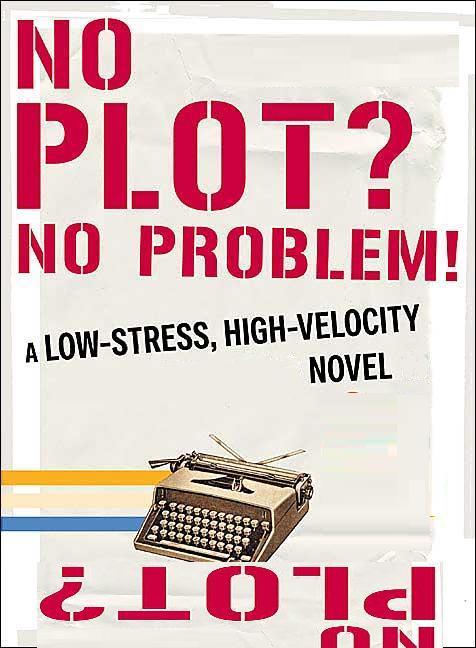 PAIDEA, NARRATIVE SETTINGS AND CHARACTERS
There is a relationship between ludus and plot's structure. However, even if
plot is an important element of narrative, many others exist. In the same way,
one must focus on ludus, a particular kind of play, without yet paying
attention to paidea.
It's easy to find ludus examples in videogames: Pac-man, Doom, Mario Bros., Myst.
These videogames usually have a clear main goal (for example, "save the princess"
or "find all the lost pages of the book"). In these videogames, the player can
easily know the final result. For example, if she frees the princess in Mario,
she will win. If she can't, she will lose.
VIRTUAL SIMULATORS:
Let's take a look at simulators: there is not a clear goal in SIM CITY. The
player can define his own goal: to build a big city, or a pretty city, or a
safe city. The same is true with flight simulation. Even though many flight
simulators include missions with goals ("bomb the building' or "land the plane"),
most of the pleasure of the software may be just in the ride. The player is free
to decide what she wants to do (for example, do some acrobatic loops, or fly under
that bridge, or over that city).
These simulations do have rules of defeat, but not rules of triumph: the main goal
is up to the player. They are more like toys or even playgrounds. They give
freedom to the player to decide what to do.
Paidea videogames have no pre-designated goal. So, there is no "winning plot",
as in adventure videogames. The player has more freedom to determine one's goals.
As soon as the paidea player determines a goal with winning and losing rules,
the activity may become a ludus.
If ludus can be related to narrative plot, paidea can be related to the narrative
settings. The ability to perform paidea activities is determined by the
environment (real location of player or virtual world) and the actions. The
environment includes topology, objects and other characters.
Many times, the setting is a main component of a novel. The description of the
places, the objects and the characters presented in the novel are of extreme
relevance.
The paidea elements (setting) are not functional towards the ludus, but they can
be a very important part of the game experience and, therefore, they deserve
studying.
The setting in videogames is different than the one in traditional narratives.
The videogame designer can allow the player to perform man actions on any object
in the environment (like manipulate, examine, move, break or use it). Some
particular kinds of objects have anthropomorphic behavior; they seem to be
independent; somehow intelligent; perform different actions and communicate with
the player: they are the computer-controlled characters.
The most developed kind of paidea videogames are MUDs and MOOs. They define a
virtual world, where many actions are possible, including expanding the topology
and creating new objects. Their thematic is varied: many of them are set in
fictional worlds, others not. Some are set in medieval times, other in
science-fiction worlds; and many reproduce traditional towns or cities.
PAIDEA, NARRATIVE SETTINGS AND CHARACTERS
There is a relationship between ludus and plot's structure. However, even if
plot is an important element of narrative, many others exist. In the same way,
one must focus on ludus, a particular kind of play, without yet paying
attention to paidea.
It's easy to find ludus examples in videogames: Pac-man, Doom, Mario Bros., Myst.
These videogames usually have a clear main goal (for example, "save the princess"
or "find all the lost pages of the book"). In these videogames, the player can
easily know the final result. For example, if she frees the princess in Mario,
she will win. If she can't, she will lose.
VIRTUAL SIMULATORS:
Let's take a look at simulators: there is not a clear goal in SIM CITY. The
player can define his own goal: to build a big city, or a pretty city, or a
safe city. The same is true with flight simulation. Even though many flight
simulators include missions with goals ("bomb the building' or "land the plane"),
most of the pleasure of the software may be just in the ride. The player is free
to decide what she wants to do (for example, do some acrobatic loops, or fly under
that bridge, or over that city).
These simulations do have rules of defeat, but not rules of triumph: the main goal
is up to the player. They are more like toys or even playgrounds. They give
freedom to the player to decide what to do.
Paidea videogames have no pre-designated goal. So, there is no "winning plot",
as in adventure videogames. The player has more freedom to determine one's goals.
As soon as the paidea player determines a goal with winning and losing rules,
the activity may become a ludus.
If ludus can be related to narrative plot, paidea can be related to the narrative
settings. The ability to perform paidea activities is determined by the
environment (real location of player or virtual world) and the actions. The
environment includes topology, objects and other characters.
Many times, the setting is a main component of a novel. The description of the
places, the objects and the characters presented in the novel are of extreme
relevance.
The paidea elements (setting) are not functional towards the ludus, but they can
be a very important part of the game experience and, therefore, they deserve
studying.
The setting in videogames is different than the one in traditional narratives.
The videogame designer can allow the player to perform man actions on any object
in the environment (like manipulate, examine, move, break or use it). Some
particular kinds of objects have anthropomorphic behavior; they seem to be
independent; somehow intelligent; perform different actions and communicate with
the player: they are the computer-controlled characters.
The most developed kind of paidea videogames are MUDs and MOOs. They define a
virtual world, where many actions are possible, including expanding the topology
and creating new objects. Their thematic is varied: many of them are set in
fictional worlds, others not. Some are set in medieval times, other in
science-fiction worlds; and many reproduce traditional towns or cities.
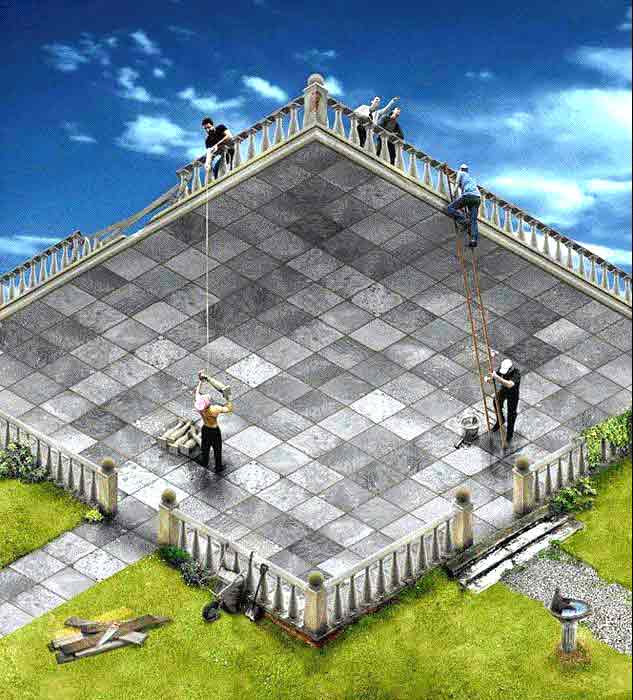 The Purpose of MOOs
Technology has had a profound impact on human lifestyle time and time again.
Since the advent of personal computers, lifestyle, in the United States of
America especially, has undergone another dramatic change. Today we live in a
society where America Online has over 7 million members and "cyberspace" is
looking for its role in our day-to-day realities. One of the newest internet
related technologies is the MOO (MUD Object Oriented). MOOs evolved from MUDs
(Multi-User Domains).
Terms:
MOO: MUD Object Oriented or less commonly, Multi-User Object Oriented systems
MUD: Multi-User Dungeon/Domain/Dimension
MUSE: Multi-User Simulated Environment
MUSH: Multi-User Shared Hallucination
MUVE: Multi-User Virtual Environment
MUX: Multi-User X-perience
VEE: Virtual Educational Environment, a MOO for educational purposes
OOP: Object Oriented Programming
MUD's (multiplayer-based Virtual Video Games)
As MUDs are multiplayer-based, they have an enormous advantage over adventure
games: human-controlled characters. The fact that a real (hopefully intelligent ;)
person is behind an avatar, allows a kind of realism and conversation far superior
from the offered by adventures videogames. However, we believe that this fact is
also what keeps locked the potential of MUDs as a narrative-like medium.
People in multiplayer-based games do not behave like narrative characters; people's
action lack of narrative characters' coherence. Narrative characters are not like
real people; usually they are archetypes (the hypochondriac, the joker, etc.). Even
more complex narrative characters are more coherent than the behavior of MUDs
players, because behind them there is an author shaping their actions. MUD players
are not authors; even if they pretend to be somebody else, they do not usually want
to tell a story but to be engaged in paidea activities. On the other hand, narrative
characters are generally driven by different goals (conscience or unconsciently),
making their behavior more similar to ludus.
It is a common thing that, in rich countries, immigrant people clean public
toilets because generally natives can choose other jobs. Something similar happens
in MUDs. As the players are free to do everything they want, many activities (and
therefore characters) are usually absent from those environments. The consequence
of this is simple: the character richness is low. So, who will do the dirty job?
MUDs also have other kind of characters: bots (computer controlled characters).
Actually, conversational bots or chat-bots are becoming more and more sophisticated
(and many times they are mistaken as humans by many players). Bots are context
based: they can perform just certain tasks (talk about sports, for example) but
they still fail to emulate all the actions of a real human player.
Intelligent Bots could be used to solve the second problem: to represent certain
characters that are generally refused by human players. However, this would not
solve the problem that human players do not behave like characters.
The second problem is very well solved in non-computer-based role-playing games,
like Dungeons and Dragons. The Master of the game can easily craft a
"non-computer-based" bot, and give it the traits of a much realistic (and also
more narrative-like) character. The character coherence problem is partially solved
in this game: unlike in online games, people that gather together to play D&D are
usually more focused in going after a goal rather than just wandering around.
However, the problem still persists: even D&D are still players rather than authors;
they are more interested in playing rather in building a coherent, believable
character.
Fable Video Game
The Purpose of MOOs
Technology has had a profound impact on human lifestyle time and time again.
Since the advent of personal computers, lifestyle, in the United States of
America especially, has undergone another dramatic change. Today we live in a
society where America Online has over 7 million members and "cyberspace" is
looking for its role in our day-to-day realities. One of the newest internet
related technologies is the MOO (MUD Object Oriented). MOOs evolved from MUDs
(Multi-User Domains).
Terms:
MOO: MUD Object Oriented or less commonly, Multi-User Object Oriented systems
MUD: Multi-User Dungeon/Domain/Dimension
MUSE: Multi-User Simulated Environment
MUSH: Multi-User Shared Hallucination
MUVE: Multi-User Virtual Environment
MUX: Multi-User X-perience
VEE: Virtual Educational Environment, a MOO for educational purposes
OOP: Object Oriented Programming
MUD's (multiplayer-based Virtual Video Games)
As MUDs are multiplayer-based, they have an enormous advantage over adventure
games: human-controlled characters. The fact that a real (hopefully intelligent ;)
person is behind an avatar, allows a kind of realism and conversation far superior
from the offered by adventures videogames. However, we believe that this fact is
also what keeps locked the potential of MUDs as a narrative-like medium.
People in multiplayer-based games do not behave like narrative characters; people's
action lack of narrative characters' coherence. Narrative characters are not like
real people; usually they are archetypes (the hypochondriac, the joker, etc.). Even
more complex narrative characters are more coherent than the behavior of MUDs
players, because behind them there is an author shaping their actions. MUD players
are not authors; even if they pretend to be somebody else, they do not usually want
to tell a story but to be engaged in paidea activities. On the other hand, narrative
characters are generally driven by different goals (conscience or unconsciently),
making their behavior more similar to ludus.
It is a common thing that, in rich countries, immigrant people clean public
toilets because generally natives can choose other jobs. Something similar happens
in MUDs. As the players are free to do everything they want, many activities (and
therefore characters) are usually absent from those environments. The consequence
of this is simple: the character richness is low. So, who will do the dirty job?
MUDs also have other kind of characters: bots (computer controlled characters).
Actually, conversational bots or chat-bots are becoming more and more sophisticated
(and many times they are mistaken as humans by many players). Bots are context
based: they can perform just certain tasks (talk about sports, for example) but
they still fail to emulate all the actions of a real human player.
Intelligent Bots could be used to solve the second problem: to represent certain
characters that are generally refused by human players. However, this would not
solve the problem that human players do not behave like characters.
The second problem is very well solved in non-computer-based role-playing games,
like Dungeons and Dragons. The Master of the game can easily craft a
"non-computer-based" bot, and give it the traits of a much realistic (and also
more narrative-like) character. The character coherence problem is partially solved
in this game: unlike in online games, people that gather together to play D&D are
usually more focused in going after a goal rather than just wandering around.
However, the problem still persists: even D&D are still players rather than authors;
they are more interested in playing rather in building a coherent, believable
character.
Fable Video Game
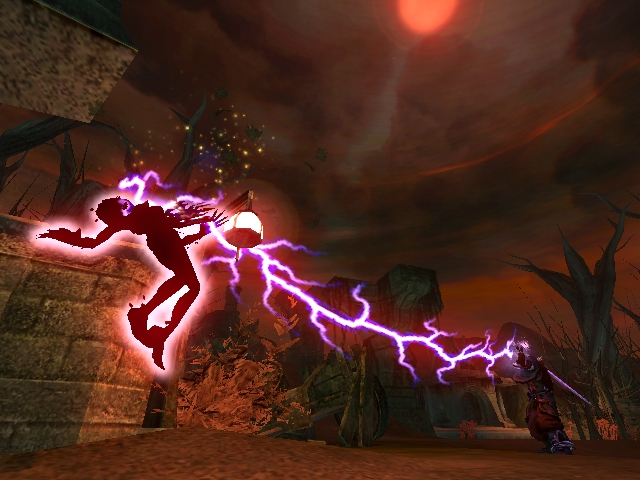 The characters that a player finds in ludus (adventure games) can be dumber than
in paidea environments. In adventures, they just appear when the plot requires it,
they don't have to be all the time around the environment. As adventure players
have less freedom of action than paidea players, the characters in ludus will have
to react to a smaller amount of stimulus.
Narrative characters are a very important component of traditional narrative,
and that potential could be translated to the computer.
Paidea-based multiplayer-based Virtual Video Gaming Environments lack the type of
characters with the same types of characteristics of narrative characters. So,
a leap of faith states that once narrative characters are introduced in paidea
environments (if that is technically possible), the player experience will be
enhanced, adding to paidea videogames some of the pleasure that traditionally is
found in the traditional narrative.
The goal is show how basic concepts of ludology could be used along with
narratology to better understand videogames. The terms of terms of ludus and
paidea are explored for two simple tasks. The first is to explain the
relationship (mostly differences) between games and narrative. The second task
is to show some relationships between narrative "environment" (settings and
particularly narrative characters) and paidea.
--------------------------------------------------------------------------------
Video game studies
From Wikipedia
Video game studies is the still-young field of analyzing video games from a
social science or humanities perspective.
Although departments of computer science have been studying video games from a
functional perspective for years, the study of them in the humanities is still
in its infancy. Unlike most computer science efforts which aim to make video
games, video games studies, like film theory attempts to understand video games,
players, and the interactions between them. Like most fields, those who study
video games often have differing approaches. While scholars use many different
theoretical frameworks, the two most visible approaches are ludology and
narratology.
The term ludology arose within the context of non-electronic games and board
games in particular, but gained popularity after it was featured in an article
by Gonzalo Frasca in 1999 "Ludology Meets Narratology: Similitude's and Differences
Between (Video) Games and Narrative." The name, however, has not yet caught on
fully. Major issues being grappled with in the field are questions of narrative
and of simulation, and whether or not video games are either, neither, or both.
The narratives approach video games in the context of what Janet Murray calls
"Cyberdrama." That is to say, their major concern is with video games as a
storytelling medium. Murray, in her book Hamlet on the Holodeck, puts video games
in the context of the Holodeck, a fictional piece of technology from Star Trek,
arguing for the video game as a medium in which we get to become another person,
and to act out in another world. This image of video games certainly has widespread
popular support, and forms the basis of films such as Tron, eXistenZ, and The Last
Starfighter. But it is also criticized by many for being better suited to science
fiction movies such as those than to analysis of real world video games.
The narrativist approach can also be found in the works of Lev Manovich as well
as in the works of Jay David Bolter and Richard Grusin, which deal more with the
concept of new media in general than with video games as such, but still
fundamentally approach video games as a text that can be read much like a book,
poem, or film, and that has many of the same elements.
The ludologists break sharply and radically from this. Their perspective is that
a video game is first and foremost just that, a game, and that it needs to be
understood in terms of its rules, interface, and in terms of the concept of play.
Ludologists such as Espen J. Aarseth argue that, although games certainly have
plots, characters, and aspects of traditional narratives, these aspects are
incidental to gameplay. In one essay, he memorably claims that "the dimensions of
Lara Croft's body, already analyzed to death by film theorists, are irrelevant to
me as a player, because a different-looking body would not make me play
differently... When I play, I don't even see her body, but see through it and past
it." Stuart Moulthrop, another ludologist, takes a slightly more moderate
perspective, arguing that one cannot completely divorce games from their social
context, but still fundamentally arguing that games are not narratives in any
meaningful sense.
In another opinion, the dualism ludology-narratology is quite artificial.
Ludology does not exclude the so-called "narratology". See Gonzalo Frasca's
article "Ludologists love stories, too: notes from a debate that never took place"
in the book Level Up (eds. Copier & Raessens, Utrecht University & DiGRA 2003).
The intersection of emerging film and videogame forms is explored further by Matt
Hanson in the book, The End of Celluloid with chapters dealing with First Person
Documentaries (derived from the first-person shooter gaming genre), avatars,
synthespians, capsule narratives, and machinima.
The characters that a player finds in ludus (adventure games) can be dumber than
in paidea environments. In adventures, they just appear when the plot requires it,
they don't have to be all the time around the environment. As adventure players
have less freedom of action than paidea players, the characters in ludus will have
to react to a smaller amount of stimulus.
Narrative characters are a very important component of traditional narrative,
and that potential could be translated to the computer.
Paidea-based multiplayer-based Virtual Video Gaming Environments lack the type of
characters with the same types of characteristics of narrative characters. So,
a leap of faith states that once narrative characters are introduced in paidea
environments (if that is technically possible), the player experience will be
enhanced, adding to paidea videogames some of the pleasure that traditionally is
found in the traditional narrative.
The goal is show how basic concepts of ludology could be used along with
narratology to better understand videogames. The terms of terms of ludus and
paidea are explored for two simple tasks. The first is to explain the
relationship (mostly differences) between games and narrative. The second task
is to show some relationships between narrative "environment" (settings and
particularly narrative characters) and paidea.
--------------------------------------------------------------------------------
Video game studies
From Wikipedia
Video game studies is the still-young field of analyzing video games from a
social science or humanities perspective.
Although departments of computer science have been studying video games from a
functional perspective for years, the study of them in the humanities is still
in its infancy. Unlike most computer science efforts which aim to make video
games, video games studies, like film theory attempts to understand video games,
players, and the interactions between them. Like most fields, those who study
video games often have differing approaches. While scholars use many different
theoretical frameworks, the two most visible approaches are ludology and
narratology.
The term ludology arose within the context of non-electronic games and board
games in particular, but gained popularity after it was featured in an article
by Gonzalo Frasca in 1999 "Ludology Meets Narratology: Similitude's and Differences
Between (Video) Games and Narrative." The name, however, has not yet caught on
fully. Major issues being grappled with in the field are questions of narrative
and of simulation, and whether or not video games are either, neither, or both.
The narratives approach video games in the context of what Janet Murray calls
"Cyberdrama." That is to say, their major concern is with video games as a
storytelling medium. Murray, in her book Hamlet on the Holodeck, puts video games
in the context of the Holodeck, a fictional piece of technology from Star Trek,
arguing for the video game as a medium in which we get to become another person,
and to act out in another world. This image of video games certainly has widespread
popular support, and forms the basis of films such as Tron, eXistenZ, and The Last
Starfighter. But it is also criticized by many for being better suited to science
fiction movies such as those than to analysis of real world video games.
The narrativist approach can also be found in the works of Lev Manovich as well
as in the works of Jay David Bolter and Richard Grusin, which deal more with the
concept of new media in general than with video games as such, but still
fundamentally approach video games as a text that can be read much like a book,
poem, or film, and that has many of the same elements.
The ludologists break sharply and radically from this. Their perspective is that
a video game is first and foremost just that, a game, and that it needs to be
understood in terms of its rules, interface, and in terms of the concept of play.
Ludologists such as Espen J. Aarseth argue that, although games certainly have
plots, characters, and aspects of traditional narratives, these aspects are
incidental to gameplay. In one essay, he memorably claims that "the dimensions of
Lara Croft's body, already analyzed to death by film theorists, are irrelevant to
me as a player, because a different-looking body would not make me play
differently... When I play, I don't even see her body, but see through it and past
it." Stuart Moulthrop, another ludologist, takes a slightly more moderate
perspective, arguing that one cannot completely divorce games from their social
context, but still fundamentally arguing that games are not narratives in any
meaningful sense.
In another opinion, the dualism ludology-narratology is quite artificial.
Ludology does not exclude the so-called "narratology". See Gonzalo Frasca's
article "Ludologists love stories, too: notes from a debate that never took place"
in the book Level Up (eds. Copier & Raessens, Utrecht University & DiGRA 2003).
The intersection of emerging film and videogame forms is explored further by Matt
Hanson in the book, The End of Celluloid with chapters dealing with First Person
Documentaries (derived from the first-person shooter gaming genre), avatars,
synthespians, capsule narratives, and machinima.
